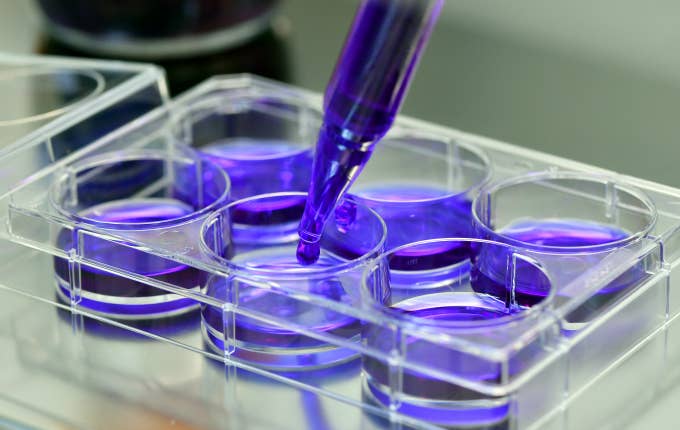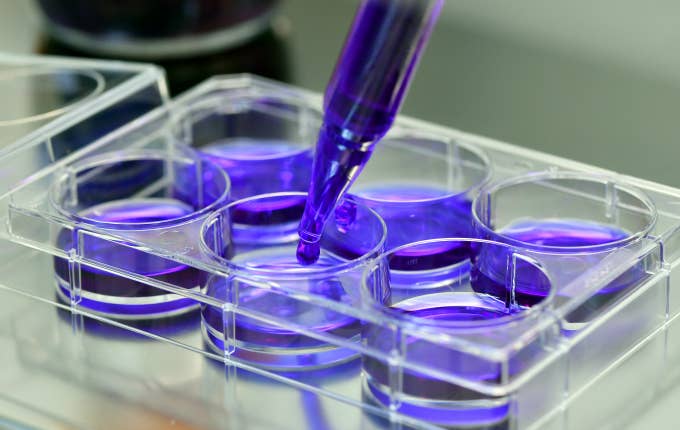
A London patient might be the second person in more than a decade to be cured of HIV.
On Mar. 5, a case study published by the science journal Nature details how one person is now in remission from HIV-1. While this is a feat within itself, what makes this person (who is only referred to as "London Patient") special is that many scientists believe that he/she may actually be cured of the viral infection. If this proves to be true, the "London Patient" will join the "Berlin Patient" who was declared HIV-free 12 years ago.
The London Patient's discovery apparently happened by accident. In May 2016, while trying to treat Hodgkin’s lymphoma, the patient was given a stem cell transplant from a donor who carried genetic mutation known as CCR5-delta 32, which is resistant to HIV. This combined with other treatments triggered a reaction that sent the patient into HIV remission. The patient has reportedly been HIV-free for 18 months and hasn't taken antiretroviral therapy drugs since September 2017.
Because both the "London Patient" and "Berlin Patient" were exposed to CCR5-delta 32 stem cells, their respective responses let doctors know that they're on to something. However, the conductors of the study do not believe that this method should be the route for every person living with HIV since the stem cell drugs were paired with radiation and chemotherapy.
"The radiation really does knock the bone marrow and make you very sick," the study's leader Ravindra Gupta stated. While researcher Graham Cooke added, "If you’re well, the risk of having a bone-marrow transplant is far greater than the risk of staying on tablets every day."
Doctors are still excited about the success of both patients and feel like they are getting closer to what Dr. Gero Hütter describes as the "real breakthrough, we are still waiting for."

